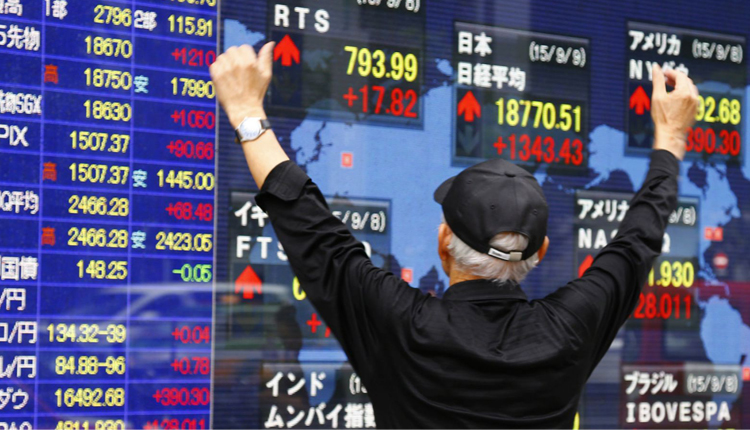Asian Pacific markets started off the trading week mostly on the back foot as major indexes in South Korea, China, Hong Kong and Singapore tumbled. The market in Japan is closed for a public holiday.
Shares in Asia were lower after Chinese government data showed that December exports and imports fell unexpectedly, deepening concerns of a slowdown in the world’s second-largest economy as Beijing’s trade war with the U.S. appeared to be taking a toll.
Louis Kuijs, head of Asia economics at Oxford Economics, said in a note that China’s import slowdown was consistent with other signs that growth in the domestic economy was weakening.
“We think overall economic growth slowed further in (fourth-quarter) 2018 and remains under pressure from weaker exports, slow credit growth and cooling real estate activity in (first-half) 2019,” Kuijs said.
China’s trade surplus with the U.S.- closely watched amid a bitter trade war between Washington and Beijing- grew 17 percent from a year ago. According to Reuters, that’s the highest on record dating back to 2006. Still, overall Chinese trade surplus last year was the lowest since 2013, the news agency reported.
The Shanghai composite slipped about 0.49 percent while the Shenzhen component index fell 0.59 percent.
China’s central bank set the yuan midpoint at 6.7560 against the dollar before market open — it was the strongest since Jul. 19, 2018, according to financial data provider Wind.
On-shore yuan traded at 6.7493 versus the greenback as of 10:49 a.m. HK/SIN. The People’s Bank of China allows the exchange rate to rise or fall 2 percent from the official midpoint rate it sets daily.
In South Korea, the Kospi declined nearly 0.6 percent as tech names in the country declined.
Samsung Electronics, the world’s largest smartphone maker, fell 0.62 percent while its chip-making rival SK Hynix tumbled 4.15 percent. Shares of internet firm Naver fell 3.82 percent.
Hong Kong’s Hang Seng Index was down 1.42 percent while Singapore’s Straits Times Index fell 0.35 percent.
In company news, Singapore-listed real estate developer CapitaLand said on Monday it has entered into an agreement to acquire Ascendas-Singbridge. It would make the combined entity Asia’s largest diversified real estate group, the company said. Trading of CapitaLand shares were halted ahead of the announcement.
Australia’s benchmark ASX 200 reversed early gains to trade down 0.13 percent as the energy sector declined 0.92 percent.
Meanwhile, the Australian dollar traded at $0.7201 as of 10:56 a.m. HK/SIN, advancing from levels near $0.7120 in the previous week.
The U.S. dollar index, which measures the greenback against a basket of its peers, traded at 95.581 while the Japanese yen, considered a safe haven asset, was at 108.22 to the dollar.
Concerns over an ongoing U.S. government shutdown and worries about an economic slowdown in China could dampen a relatively positive sentiments seen in markets last week.
Sentiment was buoyed by “soothing words” from Fed officials and rising optimism that Beijing and Washington would resolve some of their trade differences before a 90-day moratorium on further U.S. tariff action kicks in, Ray Attrill, head of foreign-exchange strategy at the National Australia Bank, wrote in a morning note.
The “expectation that the Fed is now on hold for the foreseeable future is firmly entrenched in markets,” analysts at ANZ Research also said in a Monday note.
Source: CNBC


